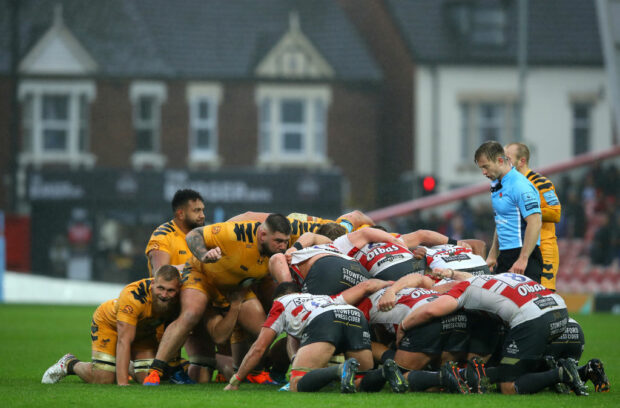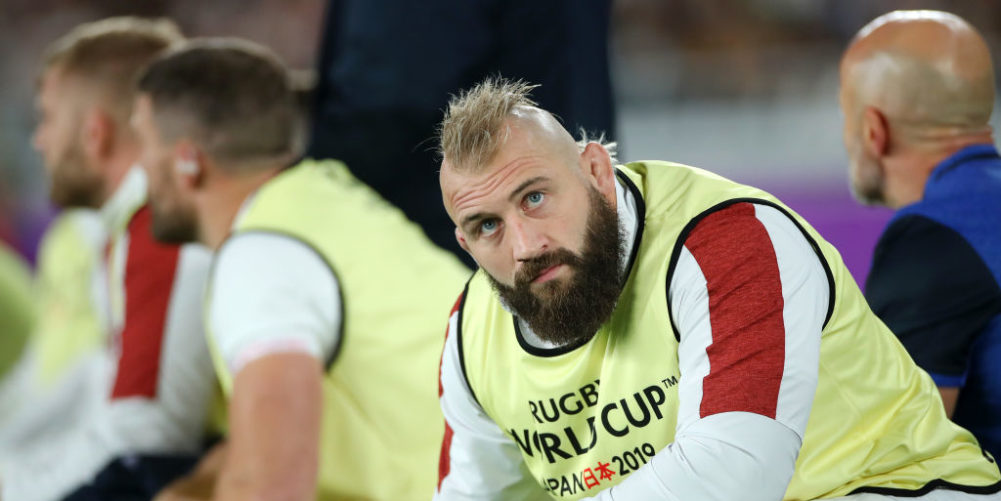THE 2019 World Cup was a great advert for the game, and even though I was a long way away from Japan, I loved it – and also believe that it can be a springboard for an even better version of rugby union.
The atmosphere was fantastic. From the first game between Japan and Russia, to the clash on the first weekend between New Zealand and South Africa, to the first sight of the Fijians against Australia, you sensed it would be a World Cup to remember – and it did not disappoint.
The Fijians brought a huge smile to my face because their three-quarter line was off the charts with their skill and pace, and any children watching would be captivated and want to find out more.
The way that Fiji and Japan played in attack was uplifting. It was great to see the Japan make the knockout stage for the first time, and from the quarter-finals, through to England knocking out the All Blacks in the semi-final, and then to them being beaten by South Africa in a one-sided final, it was memorable.
The World Cup left the game on a high, and despite the domestic difficulties around the Saracens salary cap story, there should be a feelgood factor from the tournament in rugby nations around the globe.
My only reservation is that it would be an even better sport if the benchwas reduced in number. Half a team coming on with fresh legs and sharp minds against guys who have been taken to the point of exhaustion is pushing the game out of the realms of normality.
Where the 15-a-side game was a shape for all shapes and sizes, these days anybody under 6ft and 16 stone is the exception rather than the rule, but thankfully smaller players like Cheslin Kolbe, Faf de Klerk and Kotaro Matsushima were still able to light up the stage in Japan.
We have got to make sure that Rugby Union remains a game in which skill and fitness are paramount – even though the fitness element has been eroded. This is because we have a game in which Rugby League defences have closed down space, and in which you get crooked feeds and collapsed scrums because the laws are not applied.
Let’s sort this out, and stop bowing to the wrong pressure from coaches and players. We have to get the scrum set-up much faster than it is, and to prevent collapses by making sure that props have one foot in front of the other rather than both feet back, and keep their heads above the hips. In other words, do what the law book says.
Scrum collapses are a big bugbear and detract from the game. The same is true at the breakdown. When you see players trying to jackal over the ball, while not supporting their own weight, if they put a hand, elbow or finger on the ground, it’s a penalty.

Unless referees get stricter the game can be dominated by defence too easily. There is so much killing of the ball going on, and it needs to be blown up because it ruins the game.
Defences dominate because you can be replaced after 50 or 60 minutes, and as a consequence tight forwards are not as fit overall as they used to be. A player like Alun Wyn Jones can go for 80 minutes, and so can Mako Vunipola, but there are a hell of a lot that cannot.
The only problem is that they are not made to pay the price. For instance, Japan went side to side in their semi-final against South Africa, mainly because the Springboks just bought players off the bench to replenish their defensive line if someone started tiring.
The game is great in many ways, but we should not be afraid to make it better. You could still have six or eight on the bench, but only be able to use three of them.
Some will say that the bench can always be abused by players feigning injury, but sport played at the top level should be about integrity – and just as it is when golfers and snooker players call foul on themselves, Rugby Union must be the same.
An example of that was when England coach Eddie Jones and his staff decided not to have a prop go down so they could force uncontested scrums in the final, even though the thought must have occurred.
My feeling is that we need to rebalance and enhance the attack, and you can do that by allowing players to be tired when they are participating in this game, rather than benching them.
In attack, you’re trying to manipulate defences to create space, whereas in defence you are shutting space down. The fewer subs there are on the field the more fatigue becomes a factor, and the more quick ball you get the better the attacking opportunities.
The refereeing at the World Cup was good overall, but, while referees talking to players is not a bad thing, I was left with the impression that they needed to be stronger and exercise more authority.
If you hear, “get your hands off the ball”, it should be a penalty. Tell players why they are penalised, but do not warn them. Consistency is also paramount, and one instance that stays with me is Maro Itoje jackaling for the ball in the final and not being given a clear penalty, where in almost every other instance, it would be awarded. We need to get those decisions right in big finals.
Those people I know who went to Japan had a wonderful experience, and it was great to take the tournament to a new venue. It looked good, and it was a great sell for youngsters to get involved in Rugby Union.
They will have been inspired by some great performances on the pitch, and thankfully this tournament wasn’t about administration as much as about the playing of the game.
I believe this sport can get better still, and more attractive to play and to watch, by limiting the number of substitutions – and that should be the next big step we take.
JEREMY GUSCOTT






















